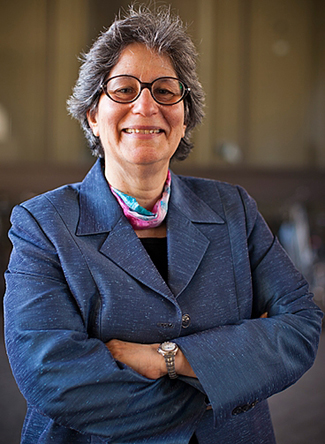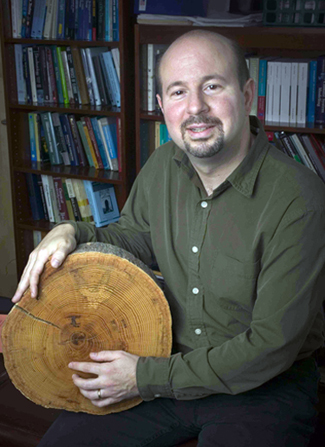Distinguished climate scientists, policymakers, and commentators will participate in a major national conference on climate science and climate change at UC Santa Cruz on Friday, February 28 and Saturday, March 1, 2014.
"Climate Science and Policy through the Looking Glass" is co-sponsored by the UCSC divisions of Social Sciences and Physical and Biological Sciences. Keynote sessions Friday and Saturday evenings and three panel discussions on Saturday are open to the public and free of charge. All events take place at the College Nine/Ten Multipurpose Room on the UCSC campus.
The primary goal of the conference is "to bring broad public attention to the challenges of climate change and provide compelling reasons why effective action is immediately needed," said Social Sciences Dean Sheldon Kamieniecki.
Keynote speakers are renowned climate scientists Susan Solomon, of MIT, a chemist, and Michael E. Mann, of Pennsylvania State University, a meteorologist.
Fred Keeley Lecture
The conference opens Friday, February 28 at 7:30 p.m. with Solomon, the Ellen Swallow Richards Professor of Atmospheric Chemistry and Climate Science at MIT, who will deliver the Fred Keeley Lecture on Environmental Policy. The Keeley Lecture series was established at UCSC in 2003 and is named for Fred Keeley, a Santa Cruz County civic leader who has helped shape environmental policy in California.
Solomon is well known for having pioneered the theory explaining why the ozone hole occurs over Antarctica, and for obtaining some of the first chemical measurements that helped establish that chlorofluorocarbons are a cause. She spent most of her career at the National Oceanic and Atmospheric Administration before joining MIT in 2011 and says she is interested in "anything that affects the chemistry of our atmosphere."
During the day Saturday, beginning at 9 a.m., three panels will convene around questions concerning the current state of climate change research, on how climate change can be mitigated (10:45 a.m.), and lastly (2 p.m) on adapting to climate change.
UCSC climate experts
Panels will be moderated by Paul Koch, UCSC dean of Physical and Biological Sciences; Daniel Press, executive director, Center for Agroecology and Sustainable Food Systems, UCSC Environmental Studies; and Erika Zavaleta, Pepper-Giberson chair, UCSC Environmental Studies.
Distinguished scholars, practitioners, and commentators including noted environmental journalist Andrew C. Revkin, writer of the New York Times "Dot Earth" blog, will take part. A complete list of the panels and participants can be found here.
Mann, director of the Earth System Science Center at Penn State, will deliver the keynote address Saturday evening at 7:30 p.m. He is the author of Dire Predictions: Understanding Global Warming, and The Hockey Stick and the Climate Wars: Dispatches from the Front Lines. He is also a co-founder and regular contributor to the award-winning science website RealClimate.org.
He has received many honors and awards including NOAA's outstanding publication award in 2002 and selection by Scientific American as one of the 50 leading visionaries in science and technology in 2002. He was awarded the National Conservation Achievement Award for science by the National Wildlife Federation in 2013..
'See something, say something'
Mann has called for scientists to take an active role beyond their research. Last month, in a New York Times opinion piece, "If You See Something Say Something", he wrote: "If scientists choose not to engage in the public debate, we leave a vacuum that will be filled by those whose agenda is one of short-term self-interest. There is a great cost to society if scientists fail to participate in the larger conversation — if we do not do all we can to ensure that the policy debate is informed by an honest assessment of the risks. In fact, it would be an abrogation of our responsibility to society if we remained quiet in the face of such a grave threat."




